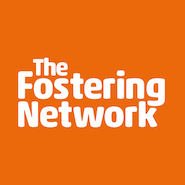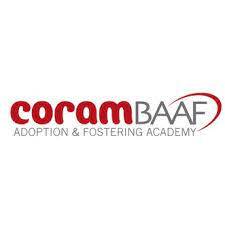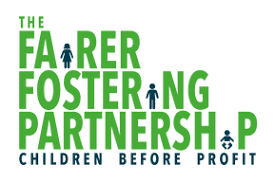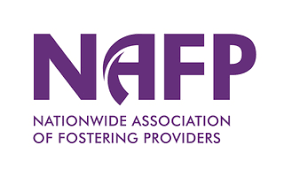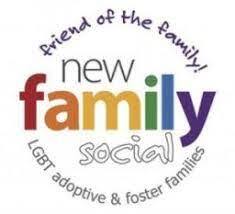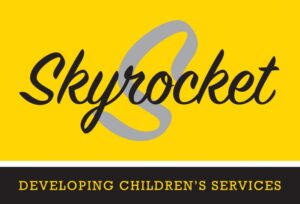A fostering step by step guide
What to expect if you start the process today.

The fostering step by step guide
Considering becoming a foster carer is the first step towards a new way of life, and to make an informed decision we think a bit of research can go a long way! Each step of the process is about getting to know you, your history and if you’re equipped for the realities of working alongside vulnerable young people.
This fostering step-by-step guide allows you to understand each step in a little detail, without feeling overwhelmed by the nitty-gritty. This is to provide you with a good footing before you make that first call to us!
The beginning
You’re ready to take the plunge! New career, no expectations, but you’re committed and passionate about supporting a young person.
You’ve made an excellent decision and contacted The CFT, a charitable organisation that prioritises the carers and children and not profit.
There are only a few things that you need at this very early stage –
> To be over 21
> Consider yourself to be reasonably fit and healthy
> Have a spare room
> Have the legal right to work in the UK

Personal factors excluding the above are not factored into the initial assessment process. Diversity is always celebrated and championed at The CFT – so if you tick the above requirements, you’re well on your way!
All prospective foster carers, no matter who you foster for have to go through the same assessment process.
Initial assessment
The initial assessment process is simply about preparing the applicants for what’s in store.
It also provides us with a chance to meet early doors; the sooner a face-to-face meeting can take place, the sooner we can determine the suitability for the role i.e. the understanding, expectations and dedication to the profession.

From the initial home visit to being approved can take 4-6 months, this is because we need to gather as much information from you as possible, and ensure you are making the right decision for yourself and your family.
We send you an information pack straight away, this includes lots of information about our organisation, fostering as a profession and how to proceed with your application.

Home visit
After a time of consideration based on all the information we provide, our Registered Manager for your region arranges a home visit. This is an opportunity to talk to the most experienced social workers in your area. The Registered Manager will speak with you about your circumstances, expectations and how you decided to foster. The meeting can last a couple of hours depending on the number of questions you may have, and if you feel The CFT is the right fit for you.
The Registered Manager can at this stage recommend you take more time to consider the decision, this is simply down to experience and the realities of entering foster care as a profession.
At The CFT we would rather individuals or families take as much time as possible to come to the right decision, we want to make sure the desire is still there over a length of time so we can be sure you’ve considered how it will impact your life.
Time to apply

Having a criminal record does not automatically mean your application will fail. We consider the kind of offense, the time elapsed and your ability to demonstrate change.

Training
Training is a huge part of the assessment process and fostering in general – You’ve got this far and you feel good about learning from those in the industry!
When you begin your application with The CFT, you enjoy professional membership to Skills to Foster.
The course is normally held over the weekend and gives prospective carers and established carers a chance to meet one another. As well as beginning to understand the day-to-day of a foster carer you will get an introduction to dealing with the complex issues that some children and young people will display, this includes as a result of abuse and trauma.
Attendance at this course is paramount, an application cannot proceed without participation.
Form F & Panel
You’ve had an informative few days at Skills to Foster and heard the ‘Form F’ term bandied around and know it’s the important bit!
The CFT follow a 2 stage process to complete the assessments.
Stage 1 involves checks completed by your Supervising Social Worker – They’ve spent a lot of time getting to know you. They’ve visited you often, as well as your referees and extended family. Once they have completed their checks they will be communicating their thoughts about you, your circumstances and your abilities to care for children.

If you pass phase 1, you move on to phase 2 of the assessment.
At this point, your Social Worker has prepared their report and as prospective carers, you have the opportunity to review and sign off the assessment before it is passed to Panel.
The foster panel is a group of independent experts in children’s services that review the compiled report and will put together some questions aimed at substantiating the evidence submitted by your social worker. Panel members come from a range of backgrounds – Experienced social workers, teachers, retired foster parents, active foster parents, previously looked after children and children’s rights experts.
You have a feeling that the panel will be a little like an interrogation and you’re feeling nervous about having to justify the report and your capabilities. You arrive with your social worker who is there specifically to support and answer some questions about how you’ve managed the process. It’s still a little daunting but immediately the panel chair has broken the ice and made you feel more comfortable.
Each panel member asks you a question or poses a scenario that you may be presented with. These questions and scenarios are familiar and you’re used to answering more personal questions after the Form F Assessment.
Panel can only make ‘recommendations’ for approval, they do not make the final decision themselves – the final decision is down to the Agency Decision Maker (ADM).
You’re asked to leave the room with your social worker, the atmosphere is less tense but you’re relieved that part is over.
A short while later, you’re welcomed back in for the results and the panel recommendation.
Agency Decision Maker - Final Approval
Every recommendation is passed to the Agency Decision Maker, it’s their job to review every application and either go with or overturn the panel recommendation.
Regardless of the recommendation, whether it was for approval, deferred (panel believe they need more information) or recommend not to approve, the Agency Decision Makers’ decision is final. They can amend the overall approval as well as the kind of placement they recommend for you.
First-time applicants can expect a written decision within 3 weeks of the Panel meeting. If you are successful in your application, arrangements will be made for your first placement.
Feeling prepared?
We hope this short fostering step by step guide has provided you with some context for the requirements before you get your first placement.
If you feel like you’re ready to take the first steps – fill in the enquiry form here.
